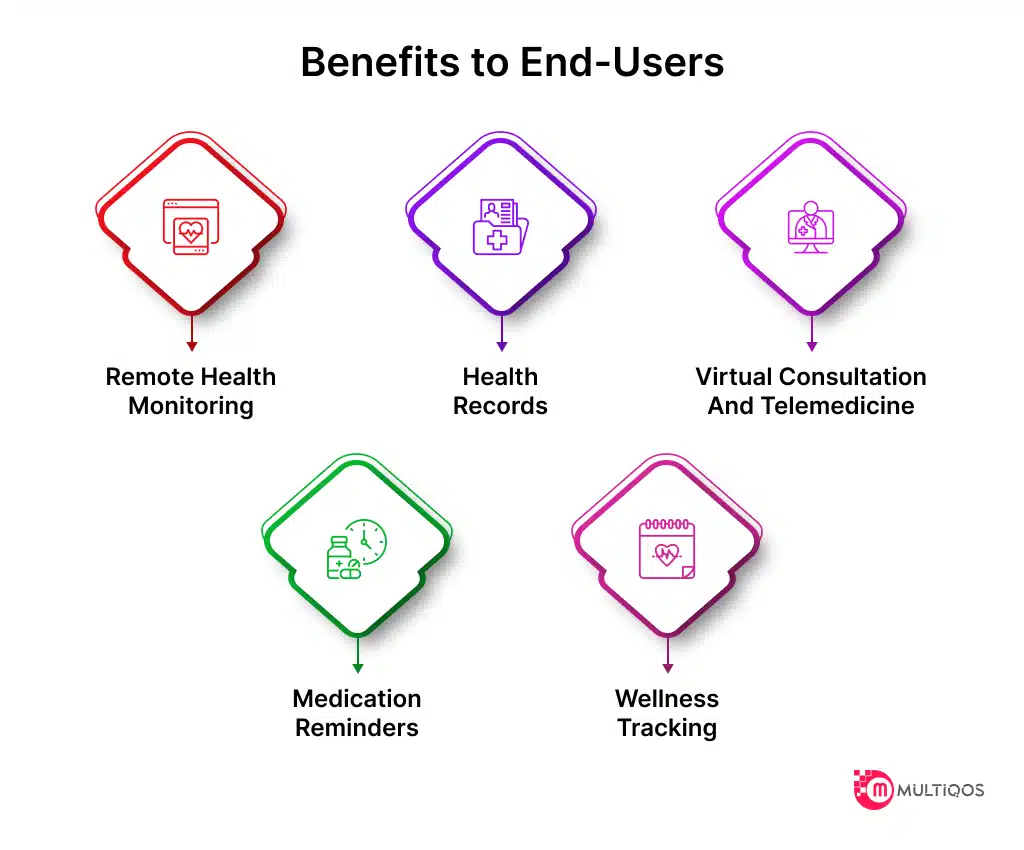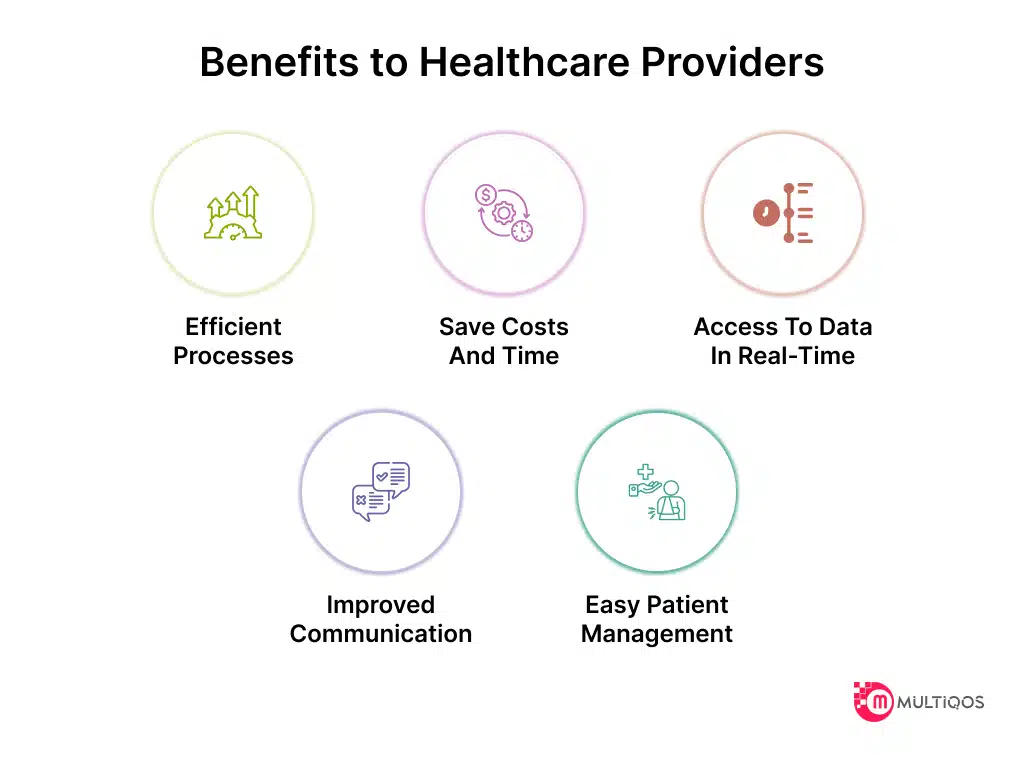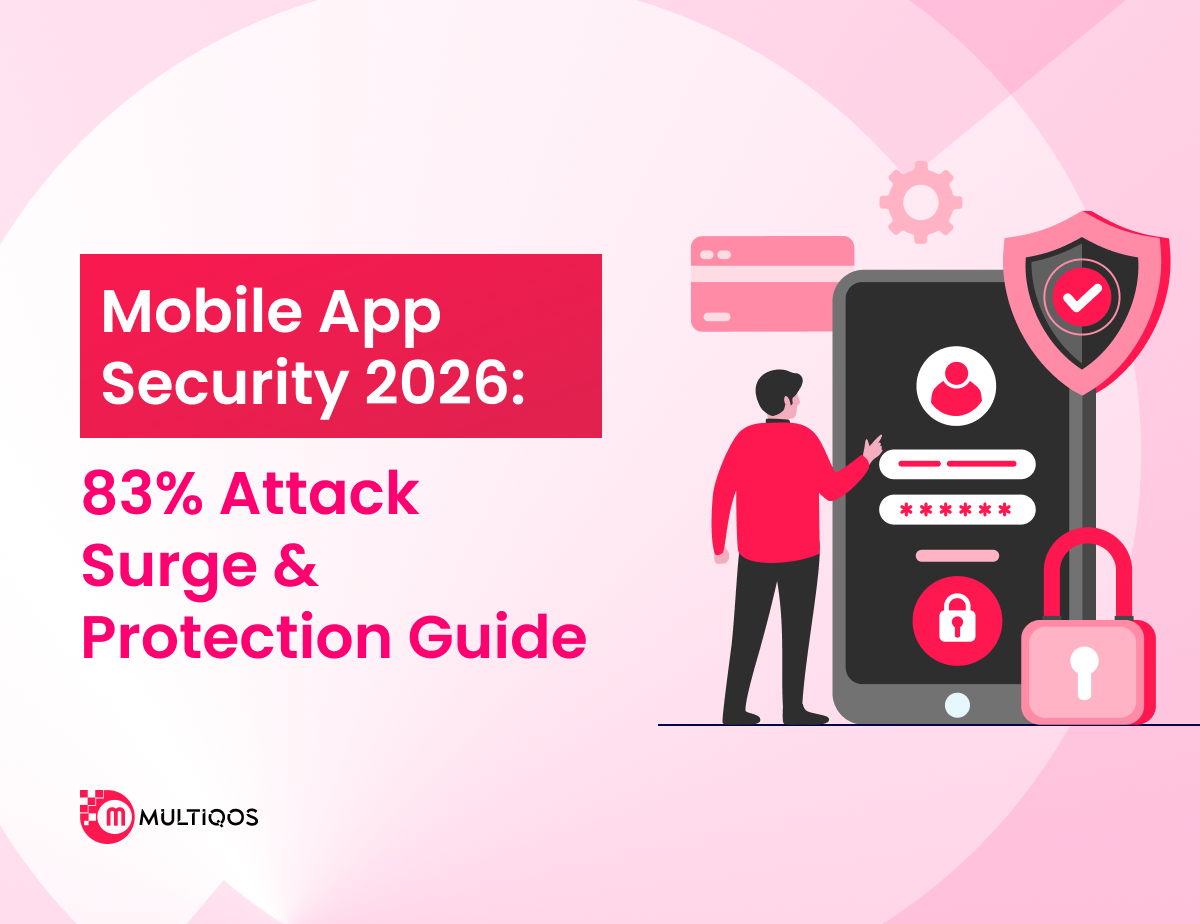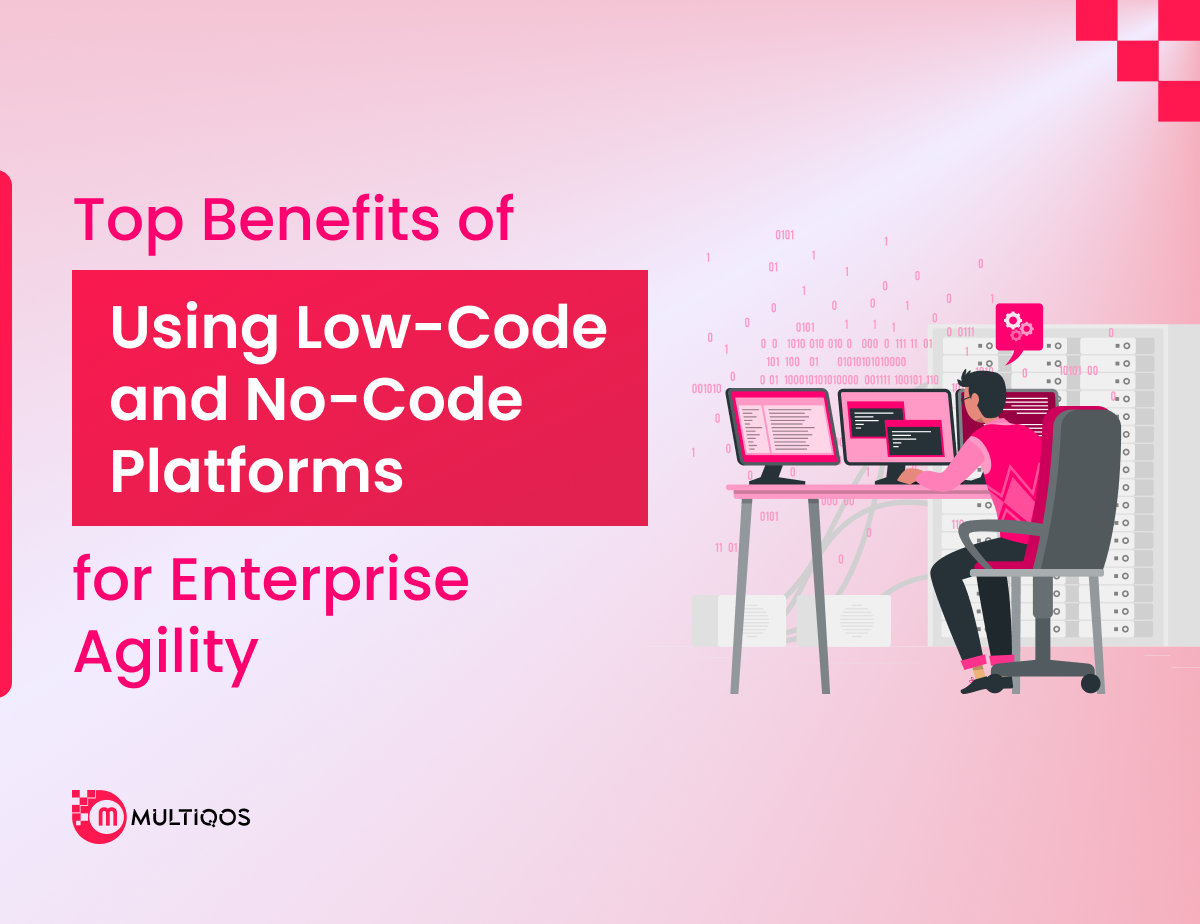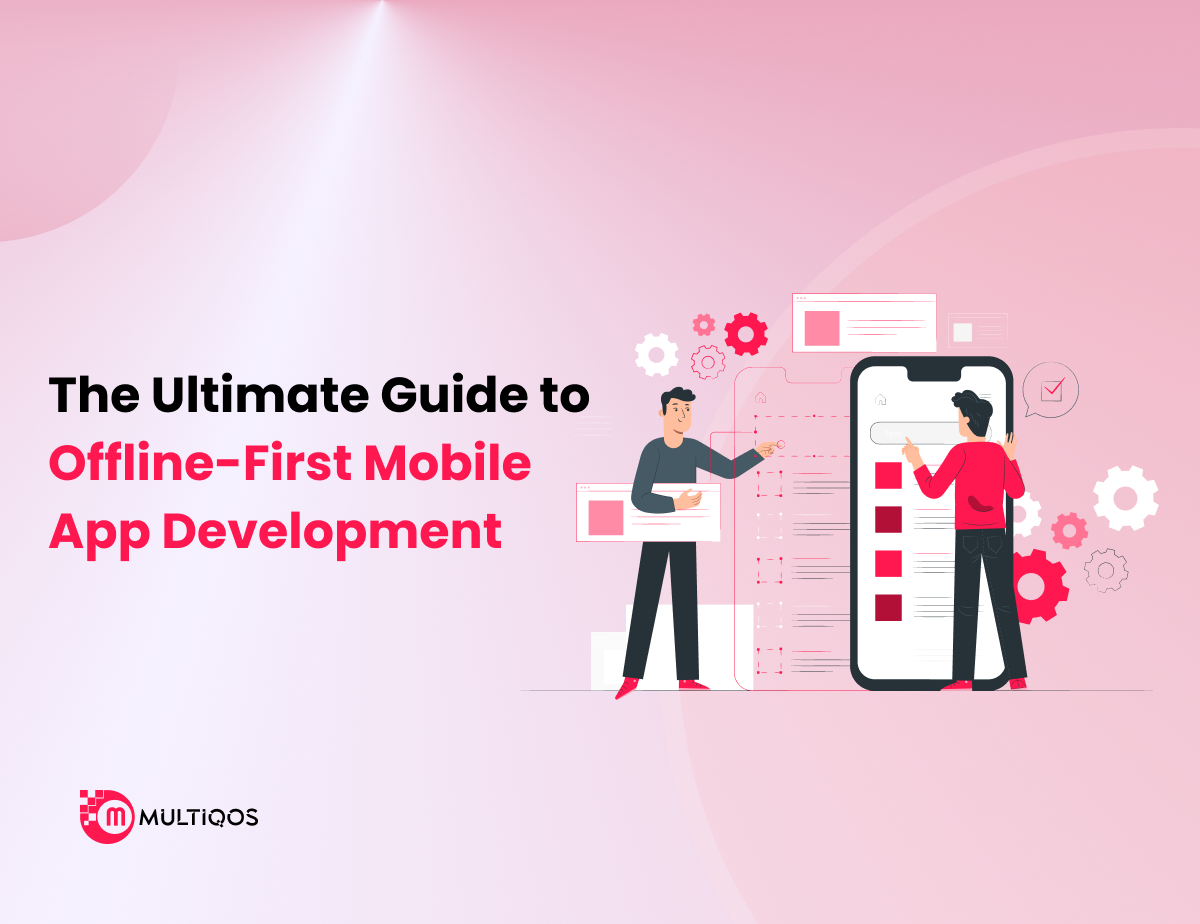The Ultimate Healthcare App Development Guide: Transforming Patient Care
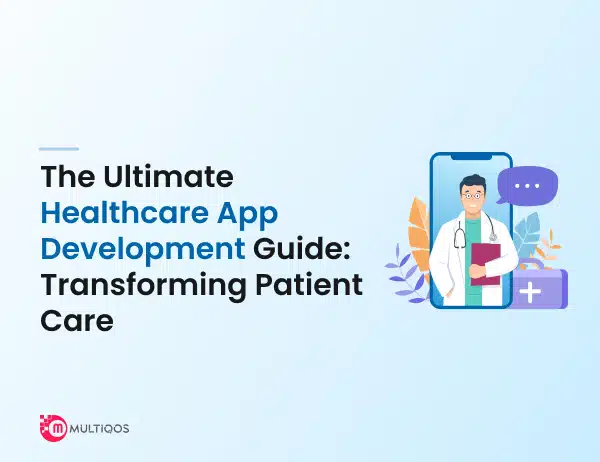
In recent years, the healthcare industry has experienced massive growth, especially, after the COVID-19 pandemic. As per GrandViewMarket research, the earnings for the global healthcare market are expected to increase over the years and are projected to reach above $385 billion in 2030.
Today, the healthcare industry is going through a transformational shift with rapid digitization across healthcare institutions and centers. Healthcare mobile apps or mHealth apps are at the heart of this shift. Hence, investments in healthcare applications are rising.
If you are considering investing in healthcare app development then this guide is for you. This guide covers everything about healthcare application development that can help you in making the right decision.
Keep reading to make an informed decision.
Healthcare App Development: An Overview
Healthcare app development refers to a process of ideating, designing, and creating a mobile application that helps end users address health-related issues. With such an app, the end users can access different types of health services without requiring a hospital visit. These apps can also help patients consult with doctors remotely and maintain their chronic health conditions.
What are the Benefits of Developing a Healthcare App?
Developing healthcare apps offers numerous advantages to both the end-users and healthcare providers. While general users can improve their everyday lives with accessible health services, healthcare providers can benefit from increased efficiency and automated operations.
The following are all the benefits that the end-users (patients) and healthcare providers receive with a healthcare mobile application.
Benefits to End-Users
- Remote Health Monitoring: One significant benefit of a healthcare mobile application to end-users is remote health checkups and monitoring. It can help monitor the vital signs or health conditions of patients who have undergone surgery recently. Remote monitoring will help reduce the number of hospital visits by checking the progress of the patient’s health condition.
- Health Records: With a user-friendly healthcare application, patients will have access to their healthcare records at their fingertips. These records include test results, medication history, and other important data. They can be easily accessed when communicating with doctors or when there is an emergency.
- Virtual Consultation and Telemedicine: Healthcare apps with telemedicine features will enable patients to get medical consultations remotely. They can easily communicate with a healthcare practitioner and eliminate the need for hospital visits.
- Medication Reminders: Healthcare applications can help patients take medicines on time in the correct dosages with regular alerts or reminders.
- Wellness Tracking: Many healthcare apps also offer features to track health metrics such as nutritional status, sleep cycle, physical activity, and more. Hence, these applications help address the broader health and wellness objectives of a patient. It enables patients to track their health aspects and the progress that has been made.
Benefits to Healthcare Providers
- Efficient Processes: Applications can help streamline paperwork and administrative functions by digitizing the documentation process. It makes health data more accessible at different ends and improves the quality of healthcare services. Healthcare providers can focus more on offering better care instead of wasting time on paperwork and administrative processes.
- Save Costs and Time: Using healthcare apps reduces costs and overall time in healthcare services. Since documenting health information saves resources like paperwork and human effort employed for it, it saves the time and cost involved in the process.
- Access to Data in Real-Time: Healthcare providers can make better decisions with the help of a well-built mobile app as they can get real-time access to patient information. The ability to access the information in real-time enables healthcare providers to make the right decisions avoiding delays in treatment.
- Improved Communication: A healthcare application serves as a convenient bridge between patients and healthcare providers. It simplifies communication between them and allows them to exchange information in real-time. Apart from this, the app also helps in inter-professional communication to help teams coordinate patient care well.
- Easy Patient Management: Apps can simplify and speed up the tasks related to patients like appointment booking, patients’ progress tracking, handling records, and more. Concerned individuals can handle these tasks in a few clicks. Plus, these apps require minimal human intervention that speeds up the overall process.
Healthcare App Development Ideas
Healthcare apps have become widespread today and they are used like your routine apps like ride-sharing, food delivery, and OTT apps. The following healthcare app ideas give some novel healthcare mobile app development options that can push the boundaries of what’s possible.
- Mental Health Apps: The significance of mental health is increasing in our society as people become more aware of emotional health. Hence, people are attracted to mHealth apps that help them deal with anxiety, stress, depression, and other challenges.
- Medication Management Apps: These apps can help patients keep track of their medication schedule with reminders and notifications. With reminders, these apps help you avoid missing a dose. Plus, they check for interactions between drugs that may affect your health. These apps can help patients of all ages manage their health effectively.
- Telemedicine Apps: These apps are quite useful for patients in rural areas or remote locations to get doctor consultations over video calls and get medical documents. In fact, telemedicine apps proved quite useful during the COVID-19 pandemic when hospital visits were difficult.
- Fitness Tracking Apps: The use of wearable devices is increasing as people tend to focus more on health and fitness. Fitness-tracking apps help in tracking various fitness metrics like sleep cycle, heart rate, blood oxygen saturation, etc. The demand for these types of apps is increasing as people are now more health-conscious.
- Chronic Disease Management Apps: Living with a chronic health condition often results in juggling multiple medications, doctor appointments, and more. The use of a mobile app can simplify this by managing these tasks in a few taps. Indeed, these apps can be very helpful for people with heart disease, asthma, and diabetes.
Key Features for Healthcare App Development
There are a lot of features that you can implement on a hospital app or healthcare app. However, you should focus on features that resonate with your expertise and avoid implementing unnecessary features that will only add to the cost of developing the app. The following are the key features of medical app development.
- Telehealth or Telemedicine
- EHR
- Notifications
- User-friendly Dashboard
- Search Bar
- Payment Integration
Step-by-Step Process to Develop Healthcare Apps
The process of building a healthcare app involves a definite plan to create an application that will cater to the needs of both healthcare providers and end users. Creating such an app requires a thorough understanding of the project, planning, and a vision to translate abstract ideas into reality.
With years of experience in app development, we have the relevant skills and expertise to accomplish any project with utter excellence. The following is the complete step-by-step process of how you can do it.
Come Up with a Plan
The first step in healthcare app development is to figure out what the end users want. Identify their pain points and figure out how your app can solve those problems. Plus, you can also ponder over your app’s type to choose the right technologies and tools to develop it. Once you have everything defined beforehand, the steps further will be easier to follow.
Conduct Market Research
Once you know the pain points of the end users and the type of app you wish to develop, you can carry on with market research. In this step, you can analyze competitors and discover the potential gaps that your application can fill.
Based on the market research, you will define the necessary features and functionalities of your application. Apart from competitor’s research, you should also understand necessary regulatory compliances and industry norms that must be fulfilled like HIPAA.
Determine the Deployable Platform
The next step in healthcare application development is deciding the target platform – Android, iOS, web, or hybrid. Depending on which kind of app you want to develop, you will have to pick a suitable tech stack. If you want to develop a native healthcare app for both Android and iOS platforms, you will need to invest in two separate apps for each platform.
However, if you want a single app that can run on both Android and iOS devices, investing in a hybrid app is the right deal.
Choose a Tech Stack
The next step is to select a tech stack for building your healthcare application. Every mobile app has two components – frontend and backend. You need to choose the tech stack to develop these components and create a powerful and feature-rich application.
- Programming Languages: Java, Kotlin, Swift, and JavaScript
- Frameworks: Flutter, React Native, Ionic, and Xamarin.
- Databases: SQLite, Firebase, MongoDB, PostgreSQL, and MySQL.
- Third-party Integration: Google Maps, Stripe, PayPal, etc.
Development
Once you have a roadmap to develop the app and chosen a suitable tech stack, the next step is to develop the mobile app. It involves coding the app components and features as well as user interface design.
Best practices are followed to develop the app to meet the necessary industry standards and compliances. For example, healthcare apps must adhere to HIPAA compliance. Similarly, there are other compliances like PCI DSS for secure payments and more.
Testing
After development, the app goes through stringent testing to check for errors and bugs. These tests ensure the quality of mobile applications by performing, functional, performance, usability, and other checks. Testing ensures that the application aligns with your goals and passes the necessary quality checks.
Deployment
Finally, after development and testing the app will be available to users via app store distribution. The app is deployed to respective app stores – Google Play Store for Android and Apple App Store for iOS devices. Users can easily find and download the app from these platforms.
Best Practices for Healthcare App Development
The healthcare app development process is challenging as it entails many complex tasks. Plus, you need to ensure that it meets the required industry regulations. The following healthcare app development best practices can help you develop the right application with the desired features and benefits.
- Focus on One App Category: While there are multiple healthcare app types like appointment booking, fitness tracking, and more, you should focus on a specific app type. By focusing on a single expertise, you can offer better value by addressing their pain points.
- Follow All Compliances: The healthcare industry encompasses strict security and data protection regulations. You must adhere to these regulations like HIPAA, GDPR, CCPA, PIPEDA, NIST, and HiTech.
- Interoperability: It is also an important healthcare app development best practice that ensures seamless transmission of information from one device to another. Hence, you should create a clear and secure line of interoperability.
- Hack-proof Security: The healthcare sector is one of the prime targets of cyber criminals who steal data. Hence, healthcare applications must have stronger security measures to protect data. Implement features like encryption and multi-factor authentication to enhance the security of your application.
- Choose API and Integration Carefully: Make the right choice for API and third-party integration to build a secure and efficient healthcare application.
How Can MultiQoS Help?
With the changing landscape of the health sector, the importance of a healthcare app cannot be underestimated. It has become a transformative way to streamline operations, manage data, gain a competitive edge, and improve patient care.
As an experienced mobile app development company, MultiQoS can help you develop a top-notch healthcare application with cutting-edge features. You can leverage our expertise in app development to craft user-friendly and engaging healthcare apps.
Get in touch with us and discuss your requirements briefly to let us help you build the right app.
Frequently Asked Questions
The cost of developing a healthcare application varies with the diverse factors that affect it such as the app’s complexity, number of features, integrations, and more. Since the cost is variable and changes depending on the factors affecting it. Moreover, the rough estimates for the cost fall in the range of $10,000 – $150,000 or more.
To calculate the cost of a healthcare mobile app, you need to consider all these factors. Moreover, it is difficult to determine the cost until you define your requirements. You can connect with us to get an estimate by discussing your needs with our experts.
Yes, creating a healthcare app will offer significant profits. You can choose a suitable pricing model for your healthcare app to earn from it. For example, your app can offer a subscription-based pricing model, where users can subscribe to your app’s services to get access to quality healthcare services like doctor consultations.
You can explore other pricing models and choose the one that fits your needs the best. Your profit can vary depending on which type of pricing model you choose. You can also offer a free pricing model and earn through partnerships or in-app ads or purchases.
Developing a healthcare application requires distinct amounts of time due to many factors like its complexity, features, development approach, and more. Moreover, creating a simple app takes a few weeks/500 hours or more.
On the other hand, developing a more complex application will take many weeks or months. So, as the complexity increases, the timeline for developing an app will extend further. Therefore, highly complex healthcare applications may take a year or more in the development process.
There is a wide range of technologies that can be used to develop a healthcare mobile application. However, the decision of choosing a tech stack depends on many factors like your goals, preferences, type of app, and more.
For example, if you want to develop a native mobile application then you can choose technologies like Java, Swift, Kotlin, and Objective-C. Moreover, if you wish to develop a cross-platform or hybrid application, choose a framework like Flutter, React Native, and Ionic.
So, you can choose a tech stack to build an app depending on your requirements and specifications. Top technologies for developing mobile apps include React Native, Flutter, Ionic, Java, Kotlin, and Swift.
When developed with the right features and user interface design, healthcare apps can be beneficial for a business. Unfortunately, healthcare apps can fail due to misleading health diagnosis information, subpar security features, failure to provide a user-friendly interface or any other such reason.
You can overcome these problems by partnering with the right app development team to develop the app correctly from day one. The team will guide you to choose the best features and build a user-friendly app.
Get In Touch

